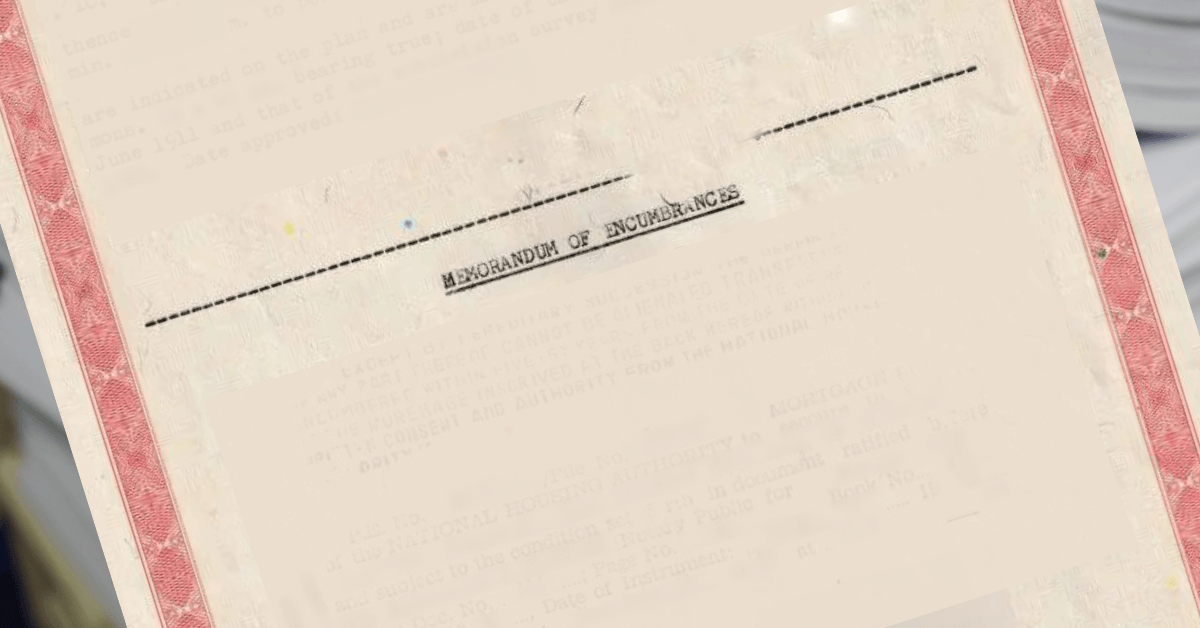Annotation of Lis Pendens on the Certificate of Title
When you come across the term “Lis Pendens,” it may sound unfamiliar, but it refers to a pending lawsuit. The purpose of filing a notice of lis pendens is to alert everyone that a property’s ownership is being disputed in court. This notice serves as a warning to potential buyers that if they purchase the property, they may be bound by an unfavorable court judgment. It’s a way to protect innocent third parties from getting involved in future legal battles over the property.
The person who files the notice of lis pendens seeks to safeguard their own rights and interests in the property. By having the lis pendens recorded on the certificate of title, they can be assured that they won’t lose the property or any part of it. For a prospective buyer, this notice serves as a warning that the property is under litigation. It advises them to stay away unless they are willing to take the risk associated with the ongoing legal proceedings.
When it comes to annotating a notice of lis pendens, there is no requirement for the party seeking annotation to prove ownership of the land. Even based on an unregistered deed of sale, the notice of lis pendens can be annotated on the title. It’s important to note that such annotation should not be considered a direct challenge to the validity of the certificate of title. Registering a notice of lis pendens doesn’t create a right or lien; it simply means that any transaction involving the property is subject to the outcome of the ongoing litigation.
The doctrine of lis pendens is rooted in public policy and necessity. Its purpose is to ensure that properties under litigation remain under the court’s jurisdiction until the case is resolved. This prevents the potential nullification of a judgment or decree through subsequent transfers of ownership.
Cancellation of Lis Pendens on the Certificate of Title
The notice of lis pendens may be canceled upon order of the court. Sec. 77 of Presidential Decree No. 1529 states:
“SECTION 77. Cancellation of lis pendens — Before final judgment, a notice of lis pendens may be canceled upon order of the court after proper showing that the notice is for the purpose of molesting the adverse party or that it is not necessary to protect the rights of the party who caused it to be registered. It may also be canceled by the Register of Deeds upon verified petition of the party who caused registration thereof.
At any time after final judgment in favor of the defendant or other disposition of the action such as to terminate all rights of the plaintiff finally in and to the land and/or buildings involved, in any case in which a memorandum or notice of lis pendens has been registered as provided in the preceding section, the notice of lis pendens shall be deemed canceled upon the registration of a certificate of the clerk of court in which the action or proceeding was pending stating the manner of disposal thereof.”
Accordingly, courts can cancel a notice of lis pendens, before final judgment, only on two grounds: a) after a proper showing that the notice is for the purpose of molesting the adverse party, or b) it is not necessary to protect the interest of the party who caused it to be recorded.
After final judgment in favor of the defendant, section 77 of P.D. No. 1529 provides the appropriate measure to have a notice of lis pendens canceled out from the title, that is, by presenting to the Register of Deeds, after the finality of the judgment rendered in the main action, a certificate executed by the clerk of court before which the main action was pending to the effect that the case has already been finally decided by the court, stating the manner of the disposal thereof.
In summary, a notice of lis pendens is a vital tool to protect property rights during ongoing legal disputes. It warns potential buyers that the property is under litigation, ensuring they understand the associated risks. Cancellation of a notice of lis pendens can only be done through a court order or by presenting a certificate of final judgment to the Register of Deeds. By following these procedures, property owners can navigate the complexities of lis pendens and safeguard their rights.




